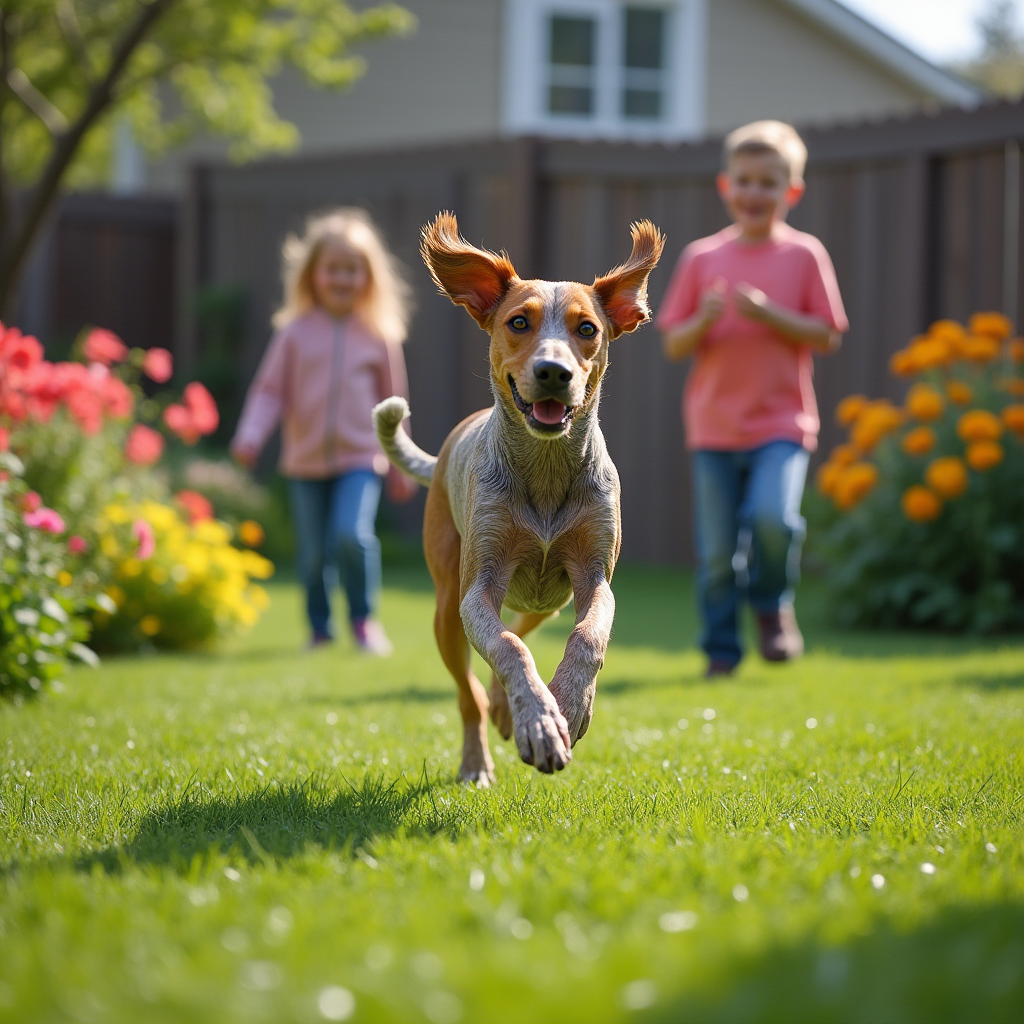Introduction
The German Shorthaired Pointer (GSP) is an affectionate, intelligent, and energetic breed that has won the hearts of dog lovers worldwide. Whether you’re looking for a loyal companion, an active playmate for your kids, or a versatile family pet, the GSP has it all. Their loving nature, boundless energy, and adaptability make them one of the best breeds for families. In this article, we’ll explore why GSP dogs make outstanding family pets and what you need to know before bringing one home.
What Makes GSP Dogs Perfect for Families?

1. Affectionate and Loyal
GSPs thrive on human companionship. They form strong bonds with their families and love being involved in daily activities. Whether snuggling on the couch or going for an outdoor adventure, they are happiest when spending time with their loved ones.
2. Protective but Not Aggressive
While not naturally aggressive, GSPs are protective of their families. Their alert nature makes them excellent watchdogs without being overly territorial or dangerous.
3. Highly Intelligent and Trainable
GSPs are quick learners, making training a fun and rewarding experience. They respond well to positive reinforcement and enjoy obedience training, agility courses, and interactive play sessions.
GSP Dogs and Kids: A Perfect Match?
GSPs and kids are a great combination, especially in active households. Here’s why:
- Their playful and energetic nature makes them perfect playmates.
- They are gentle and patient, provided they receive proper training and socialization.
- Teaching kids how to interact with a GSP fosters responsibility and companionship.
Pro Tip: Always supervise young children around any dog to ensure a safe and positive interaction.
Are GSP Dogs Good with Other Pets?
GSPs can get along well with other dogs, especially if they are socialized early. However, because of their strong hunting instincts, they may chase smaller pets like cats or rabbits.
- Introduce them to other animals gradually and positively.
- Use controlled socialization to prevent prey-driven behaviors.
- Train them early to coexist peacefully with smaller pets.
Training and Socialization: Raising a Well-Behaved GSP
1. Obedience Training
Start training early with basic commands like sit, stay, and recall. Their intelligence makes them easy to train, but consistency is key.
2. Managing High Prey Drive
Since GSPs have a natural hunting instinct, they need training to avoid chasing small animals. A strong recall command is essential.
3. Importance of Socialization
Expose your GSP to different environments, people, and animals from an early age to ensure they grow into well-mannered adults.
Exercise & Activity Needs: Keeping Your GSP Happy
1. High Energy Levels
GSPs are one of the most energetic dog breeds. They require at least 1-2 hours of exercise per day.
2. Fun Activities
- Running & hiking: Perfect for active owners.
- Agility training: Keeps their mind and body engaged.
- Swimming: A favorite activity for many GSPs.
3. Avoiding Destructive Behaviors
Without adequate exercise, GSPs can develop destructive habits like excessive barking, chewing, and digging. Keeping them active prevents these issues.
Grooming & Health: Low Maintenance but High Energy
1. Grooming Needs
- Short coat requires minimal grooming.
- Brush weekly to remove loose hair.
- Clean ears regularly to prevent infections.
2. Common Health Concerns
- Hip Dysplasia: A common issue in large breeds.
- Ear Infections: Due to their floppy ears.
- Bloat (Gastric Torsion): Can be life-threatening; feed smaller meals throughout the day.
3. Nutrition & Diet
A protein-rich diet supports their active lifestyle. Look for high-quality dog food with balanced nutrients.
Final Thoughts: Is a GSP Right for Your Family?
German Shorthaired Pointers are loyal, affectionate, and full of energy, making them a perfect choice for active families. However, they do require plenty of exercise, training, and socialization. If you’re ready for a fun-loving and adventurous companion, a GSP might be the perfect addition to your home!
10 FAQs About GSP Dogs
- Are German Shorthaired Pointers good for first-time dog owners?
GSPs are intelligent and trainable but require consistent exercise and training, which may be challenging for first-time owners. - How much exercise does a GSP need daily?
At least 1-2 hours of physical activity is essential for a happy and well-behaved GSP. - Are GSP dogs good with small children?
Yes! They are playful and affectionate, making them great companions for active kids. - Can GSP dogs live in apartments?
They can adapt to apartment living only if they get enough daily exercise. Otherwise, they may become restless. - Do GSP dogs bark a lot?
GSPs are not excessive barkers, but they will bark if they lack exercise or need attention. - How do I train a GSP to be calm indoors?
Ensure they get enough exercise and use mental stimulation like puzzle toys to keep them engaged. - Do GSP dogs get along with cats and other pets?
With proper socialization, they can coexist with other pets, but their hunting instinct may make them chase smaller animals. - What are common health issues in German Shorthaired Pointers?
Hip dysplasia, ear infections, and bloat are the most common concerns. - How long do GSP dogs live?
The average lifespan is 12-14 years with proper care. - What’s the best diet for an active GSP?
A diet rich in high-quality proteins and healthy fats supports their active lifestyle.

